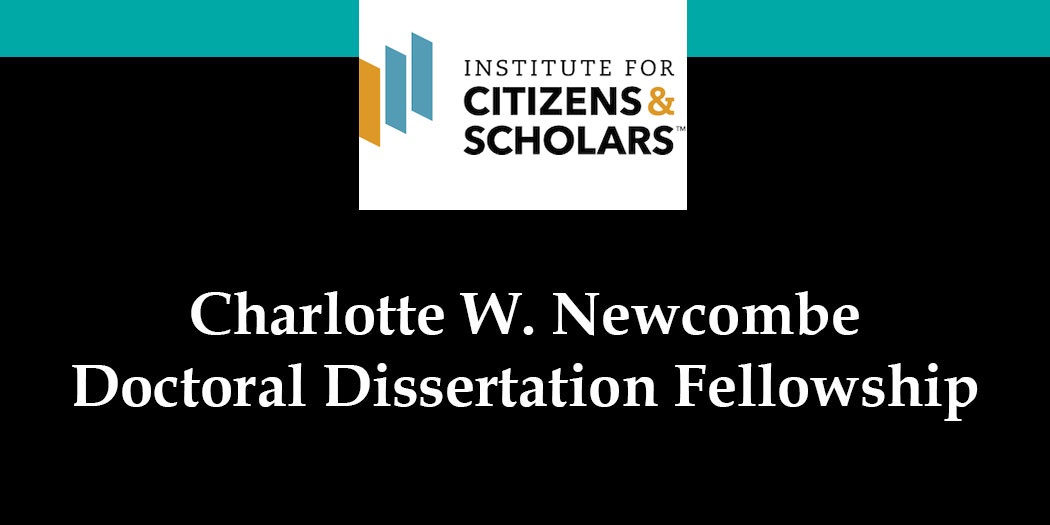The Charlotte W. Newcombe Doctoral Dissertation Fellowships are designed to encourage original and significant study of ethical or religious values in all fields of the humanities and social sciences, and particularly to help Ph.D. candidates in these fields complete their dissertation work in a timely manner. In addition to topics in religious studies or in ethics (philosophical or religious), dissertations appropriate to the Newcombe Fellowship competition might explore the ethical implications of foreign policy, the values influencing political decisions, the moral codes of other cultures, and religious or ethical issues reflected in history or literature.
The Newcombe Fellowship is intended to support doctoral students as they devote full-time effort to supplementary research activities and dissertation writing.
Eligible applicants for the 2022–2023 Charlotte W. Newcombe Doctoral Dissertation Fellowship must:
- be candidates for Ph.D. or Th.D. degrees in any field of study in the humanities and social sciences at accredited graduate schools in the United States. Candidates working on D.Min., law, Psy.D., Ed.D. and other professional degrees are not eligible.
- have completed all pre-dissertation requirements fulfilled by the application deadline November 15, 2021, including approval of the dissertation proposal.
- be in the writing stage of the dissertation. Usually, this means that fieldwork or other research is complete and writing has begun by the time of the award.
- must expect to complete the dissertation between April 1, 2023 and August 31, 2023.
- have never held a similar national award for the final year of dissertation writing. Applicants who have won such awards as the ACLS, AAUW, Ford, Mellon, NAEd/Spencer, or Whiting fellowship are not eligible.
- have never held a similar national award for the final year of dissertation writing. Applicants who have won such awards as the AAUW, Ford, NAEd/Spencer, Mellon/ACLS, or Mellon-CES fellowship are not eligible.
- be in a humanities or social science department, writing on topics where ethical or religious values are a central concern.
- Prior applicants who did not receive the award when they first applied may now reapply if their revised timeline meets Newcombe Fellowship guidelines for completion and defense.
